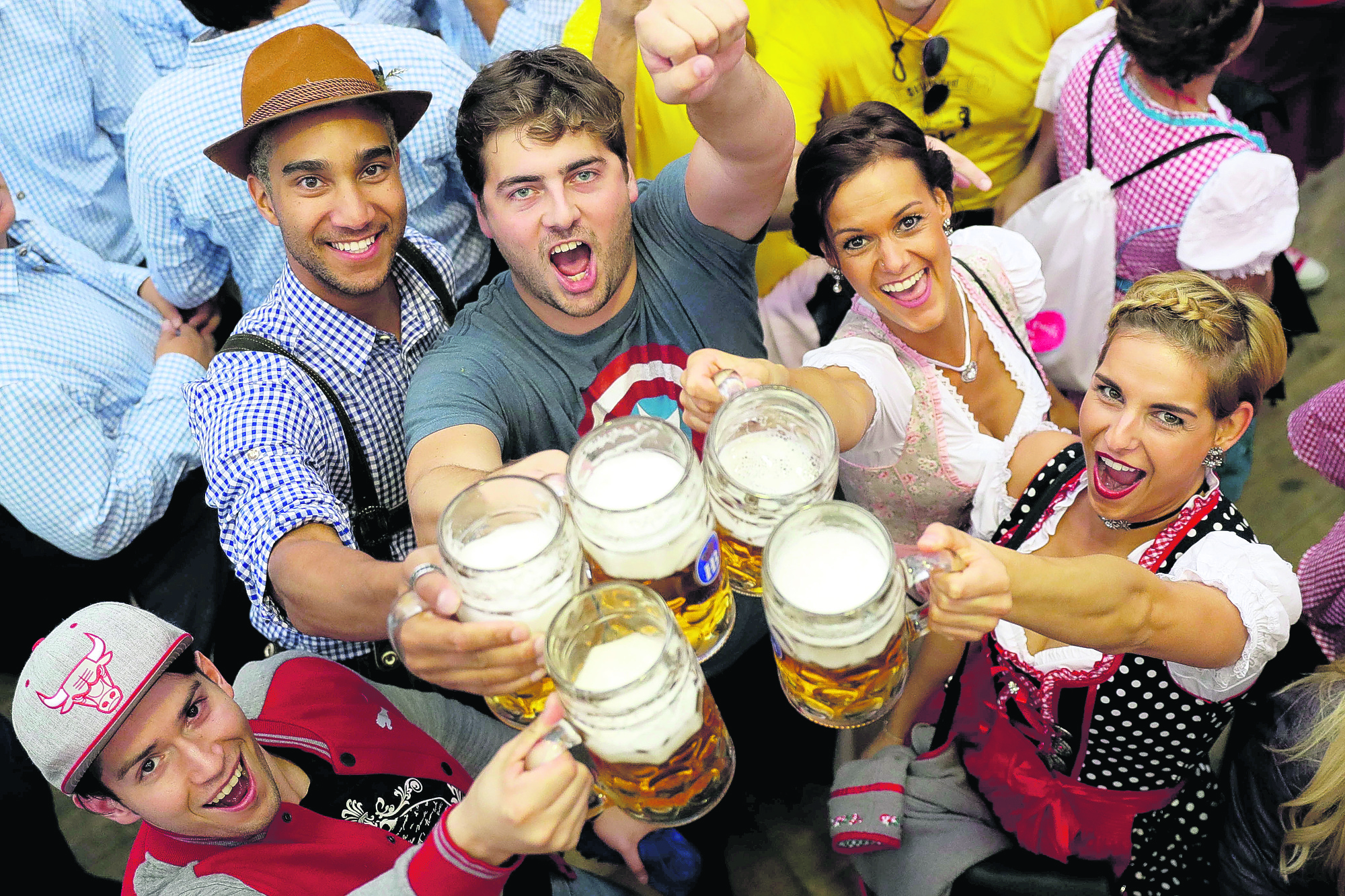
By BETH J. HARPAZ
AP Travel Editor
Think of beer and you may think of Irish pubs or Germany’s Oktoberfest. But a National Geographic book called the “Atlas of Beer” surveys beer across six continents, from banana beer in Tanzania to beer aged in wine barrels in Argentina.
“We like to seek out and drink the local beer or just see how it tastes and see how it’s different than the beers we can get at home,” said Mark W. Patterson, who wrote the book with Nancy Hoalst-Pullen.
Patterson and Hoalst-Pullen, who teach geography at Kennesaw State University in Georgia outside Atlanta, spoke about the “Atlas of Beer” and beer culture around the world in a podcast for AP Travel’s weekly series “Get Outta Here!” Here are some excerpts, edited for brevity and clarity.
Associated Press: How has Irish pub culture spread around the world?
HOALST-PULLEN:
You don’t have to necessarily be in Ireland anymore to have an authentic Irish pub
experience. When the Irish diaspora went all over the world, they brought their pubs with them. … Some people think it’s quite magical, where you can slip in and have a pint by an open fire and have a deep conversation with people that you like. … A location that feels like home is part of what people relate to.
AP: Your book describes the “shebeen queens” of South Africa, saying the term comes from an Irish word for places that illegally sell alcohol.
HOALST-PULLEN:
The women (in South Africa) who would make the beer would create in their homes
illicit bars. People would come in and drink in those locations. And then when they would be raided, they would have ways that they could hide everything. So it looked just like a normal place. The shebeen queens were some of the most powerful people in the community.
PATTERSON:
There are companies in Ireland, one in particular called the Irish Pub Co. that was
acquired by Diageo, the company that owns Guinness, and they have five or six styles of Irish pubs that they build and ship all over the world. So you can order a somewhat customized Irish pub and have it delivered at your doorstep, where you assemble it and you can serve Guinness beer there.
AP: Talk about the ancient roots of beer and how different grains grown in different places determine flavor.
PATTERSON:
The biggest impact on the taste of beer is not so much the grains but it’s actually the
yeast. So the yeast imparts a lot of flavor on the beers. Talking about the ancientness or the DNA of beer, archaeologists have found evidence that beer was being produced as long ago as 7000 years B.C. in China of all places. They’ve also found it a little bit later in time about 5000 B.C. in what we would call modern-day Iraq. But they also speculate, too, that when people would migrate, they would actually bring the grains from their local places and then actually sow the seeds in their new place. And that was specifically for brewing beer and not for making bread.
HOALST-PULLEN:
The four main ingredients that make beer, which is water and cereal grains, yeast
and hops, those are the four things that can lead to what we many times call beer terroir. You may hear the term with wine. People think about wine and where it’s grown and how that location imparts a taste onto the grapes. And there is quite a bit of thought that … different flavors of different types of beer are in part based on the locations that they’re made.
AP: Your book mentions banana beer in Tanzania.
HOALST-PULLEN: It’s kind of a wine-beer hybrid. … It’s quite thick. It’s not what most people would probably consider to be beer, that you would drink that would be reminiscent of maybe a lager or most ales, but given where it comes from and what’s available there, it’s probably something that you would want to drink to shake off the hot sun if you’re at the base of Kilimanjaro.
AP: What are some great craft beer and microbrewery destinations in the U.S.?
HOALST-PULLEN:
California, especially in San Diego, San Francisco; Portland (Oregon) area, on the West Coast, and Portland, Maine. … The Midwest is probably one of the really good hot spots to see regional beers. So Ohio and Michigan, Indiana. … Of course, Asheville (in North Carolina). Texas is another one.
PATTERSON:
I will add in there Denver. Denver is also the home of the Great American Beer Fest,
which is the largest beer fest in the U.S.
AP: What’s one of your favorite places for beer around the world?
PATTERSON:
Argentina is known for its wine but what the brewers are doing is they’re getting together
with the wineries and they’re taking their use barrels and then they’re aging their beers in used wine barrels. And the result is some of the best beers in the world. … It’s largely small batch stuff but they are trying to work their way into the U.S. market.


















